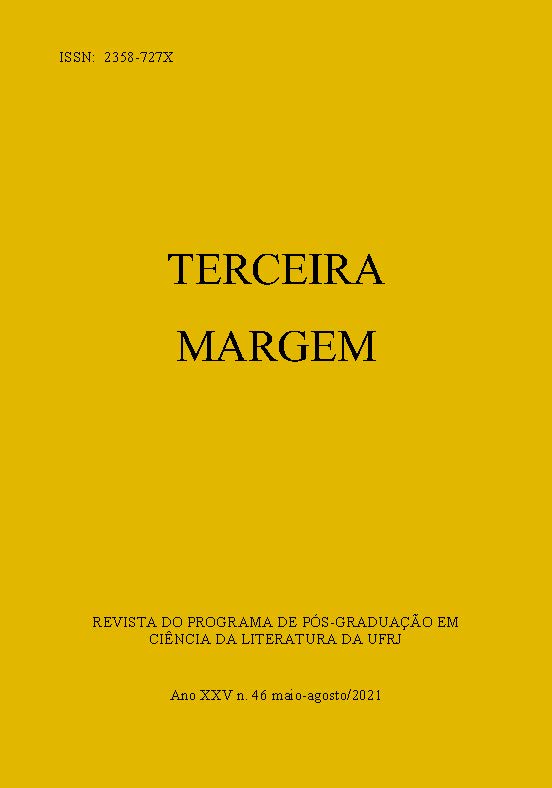The Indian Aesthetics of Emotions ("rasa"): Non-duality, Aesthetic Experience and the Body
DOI:
https://doi.org/10.55702/3m.v25i46.41586Abstract
As a spiritual discipline leading one towards the universal, Indian performing arts involve a pedagogy of disclosure, showing things as they really are: art in not a matter of unpredictable inspiration, but an effortful exploration into the extraordinary residing in the ordinary. As such, while embracing the ever-present essence of things, art is defined by Tagore as a means of disclosure of the essentiality of life, rather than a representation of it. In other words, art is a means of bringing transparency to life, getting one rid of the dust, the fantasies and the distractions that dominate one’s quotidian dealings. It’s, finally, a kind of meditative performance, a radical exercise of paying attention to one’s immediate reality.
Downloads
References
ABHINAVAGUPTA. Abhinavabhāratī. (Sanskrit original and English translation by M. M. Gosh). Delhi: New Bharatiya Book Corporation, 2006. (3 vols).
ABHINAVAGUPTA. Dhvanyālokalocana. (Sanskrit original). s/d. <http://gretil.sub.uni-goettingen.de/gretil/1_sanskr/5_poetry/1_alam/andhvc1u.htm>. Access: 01 jan. 2021.
ARISTOTLE. Poetics. (English translation by S. H. Butcher). 2008. <http://www.gutenberg.org/files/1974/1974-h/1974-h.htm>. Access: 01 jan. 2021.
BHARATAMUNI. Nāṭyaśāstra (Sanskrit original). 2001. <https://sanskritdocuments.org/doc_z_misc_major_works>. Access: 01 jan. 2021.
BHARATAMUNI. Nāṭyaśāstra (English translation by Adya Rangaharya). Delhi: Munshiram Manoharlal Publishers, 1996.
BṚHADĀRAṆYAKA UPANIṢAD. In: ŚAṄKARĀCĀRYA. Bṛhadāraṇyakopaniṣadbhāṣya. (Sanskrit Original). Madras (Chennai): Samata Books, 1983.
DERRIDA, Jacques. Writing and Difference. London & Henley: Routledge & Kegan Paul, 1978.
FOUCAULT, Michel. The subject and power. In: Essential Works of Michel Foucault. New York: The New Press, 2000. p. 326-348. (vol. 3)
GOLDEN, Leon. Mimeses and Katharsis. Classical Philology. The University of Chicago Press, v. 64, n. 3, p. 145-153, 1969.
GOSVĀMIN, Rūpa. Bhaktirasāmṛtasindhu. (Sanskrit original and English translation by David Haberman). Delhi: Motilal Banarsidass, 2003.
PICKERING, Kenneth. Key Concept in Drama and Performance. New York: Palgrave MacMillan, 2005.
TAGORE, Rabindranath. The Creative Ideal. In: Creative Unity. London: Macmillan, 1922. <https://www.gutenberg.org/files/23136/23136-0.txt>. Access: 01 jan. 2021.
Downloads
Published
Issue
Section
License
Autores que publicam nesta revista concordam com os seguintes termos:
- a. Autores mantém os direitos autorais e concedem à revista o direito de primeira publicação, com o trabalho simultaneamente licenciado sob a Licença Creative Commons Attribution que permite o compartilhamento do trabalho com reconhecimento da autoria e publicação inicial nesta revista.
- b. Autores têm autorização para assumir contratos adicionais separadamente, para distribuição não-exclusiva da versão do trabalho publicada nesta revista (ex.: publicar em repositório institucional ou como capítulo de livro), com reconhecimento de autoria e publicação inicial nesta revista.
- c. Autores têm permissão e são estimulados a publicar e distribuir seu trabalho online (ex.: em repositórios institucionais ou na sua página pessoal) a qualquer ponto antes ou durante o processo editorial, já que isso pode gerar alterações produtivas, bem como aumentar o impacto e a citação do trabalho publicado (Veja O Efeito do Acesso Livre).

